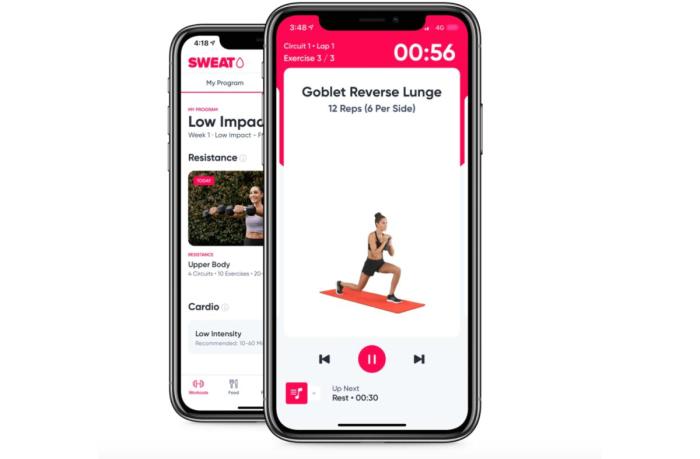Workout Apps for Women: A Comprehensive Overview

Women’s fitness journey is increasingly supported by dedicated workout apps. This article explores the landscape of these apps, delving into their features, benefits, user experiences, and the underlying technology. It examines the evolution of these apps, their target audiences, and the strategies used to market and monetize them.
Introduction to Workout Apps for Women
The market for workout apps targeting women has experienced significant growth, driven by the rising demand for personalized and convenient fitness solutions. These apps cater to a wide range of fitness levels, from beginners to advanced athletes. Their history traces back to the emergence of mobile fitness platforms, evolving from basic exercise trackers to comprehensive workout programs with social features and personalized plans.
- Overview of the Market Landscape: The current market boasts a diverse range of workout apps, offering a wide spectrum of workout types and features. These apps cater to various needs, preferences, and budgets. The apps often integrate features like progress tracking, workout scheduling, and community forums to encourage engagement.
- History and Evolution: Early workout apps focused primarily on tracking basic metrics like steps and calories burned. Over time, they have evolved to incorporate detailed workout routines, personalized plans, and social interaction tools. This evolution mirrors the increasing demand for user-friendly, personalized fitness experiences.
- Key Features and Functionalities: Common features include workout routines (yoga, HIIT, strength training), progress tracking, personalized plans, community forums, and social interaction options. Many apps now offer interactive exercise demonstrations and expert guidance.
- Types of Workouts Offered: These apps provide a wide array of workouts, including yoga, high-intensity interval training (HIIT), strength training, cardio, and more. This variety allows users to find workouts that align with their fitness goals and preferences.
- Pricing Models: Workout apps employ various pricing models, ranging from free versions with limited features to subscription-based models offering premium content and functionalities. Some apps also have a freemium model with a combination of free and paid features.
| App Name | Key Features | Pricing | User Reviews |
|---|---|---|---|
| Fitbit | Step counting, sleep tracking, activity tracking, progress visualization | Free/Subscription | Generally positive, highlighting ease of use and data tracking |
| Nike Training Club | Variety of workouts, personalized plans, progress tracking, community features | Free/Subscription | High ratings for workout variety and motivation |
| Peloton | Live and on-demand classes, interactive workouts, community features | Subscription | Strong reviews for class variety and instructor expertise |
Features and Benefits for Women
Women’s workout apps cater to specific needs, focusing on motivation, community, and personalization. These apps often provide tailored workouts for women’s unique physical needs and emotional well-being.
- Specific Features Appealing to Women: These features often include targeted workouts for specific body parts, prenatal exercises, and support for different fitness levels. They frequently incorporate mindfulness and meditation exercises to complement the physical aspect of fitness.
- Benefits Regarding Motivation, Community, and Personalization: The apps provide motivation through progress tracking, community support, and tailored plans. Personalized plans and routines help women stay engaged and achieve their fitness goals.
- Different Fitness Levels: Apps often differentiate features for different fitness levels, offering beginner-friendly routines, advanced challenges, and options for modifications. This allows users to progressively increase their fitness levels at their own pace.
- Psychological and Emotional Aspects: Many apps address psychological and emotional aspects, promoting self-care, mental well-being, and body positivity. These features aim to foster a positive and supportive environment for women.
| Workout Type | Target Muscles | Recommended Duration |
|---|---|---|
| Yoga | Full body | 30-60 minutes |
| HIIT | Full body | 20-30 minutes |
| Strength Training | Specific muscle groups | 30-60 minutes |
Final Review
In conclusion, workout apps for women are more than just digital exercise guides; they are powerful tools for motivation, support, and personalized fitness journeys. From tailored workout plans to engaging communities, these apps address the specific needs of women at all fitness levels. The future of these apps likely involves further integration of technology, personalized recommendations, and advanced features to support women’s holistic wellness. By understanding the intricacies of their development, features, and user experiences, we gain insight into the evolving role of technology in empowering women’s health and fitness.